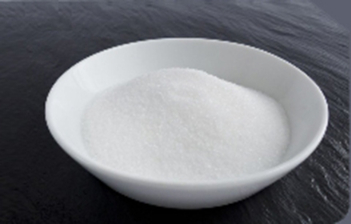Sodium tripolyphosphate (STPP), a versatile chemical compound, is widely used across industries as a food additive, detergent ingredient, and water softener. For businesses seeking custom formulations and reliable supply chains, partnering with OEM sodium tripolyphosphate suppliers offers a strategic advantage. This article provides insights into STPP, its industrial uses, and the benefits of working with an OEM sodium tripolyphosphate supplier for customized solutions.
1. What Is Sodium Tripolyphosphate?
Sodium tripolyphosphate, also known as STPP, is an inorganic compound with the chemical formula Na5P3O10 and CAS number 7758-29-4. This white, water-soluble powder is highly valued for its unique chemical properties, including its ability to act as a water softener, emulsifier, and preservative. Due to these characteristics, STPP is an essential ingredient across sectors like food, detergents, and water treatment.
2. Key Applications of Sodium Tripolyphosphate
Food Grade STPP
In the food industry, food-grade sodium tripolyphosphate is used as a preservative and moisture-retention agent. Specifically, it helps improve the texture of processed meats, seafood, and dairy products while also extending shelf life. Working with reliable OEM suppliers provides sodium tripolyphosphate in formulations that meet food safety standards, thus ensuring quality and compliance.
Detergent and Cleaning Products
One of the most common uses of sodium tripolyphosphate is as a water softener and detergent additive. Because of its ability to bind with calcium and magnesium ions, it enhances the cleaning efficiency of detergents. In fact, OEM manufacturers in China provide STPP that is tailored to specific formulations, thereby improving its performance in household and industrial cleaning products.
Water Treatment and Industrial Applications
STPP is also widely used in water treatment as a softening agent. Its role in binding hard minerals makes it valuable in boiler treatment, municipal water systems, and other industrial processes where softened water is necessary. Therefore, OEM suppliers provide STPP in custom grades and formulations suitable for these demanding applications.
3. Why Choose an OEM Sodium Tripolyphosphate Supplier?
Custom Formulation
When working with an OEM supplier, companies can receive sodium tripolyphosphate in customized grades, such as anhydrous or hydrated forms, based on their application needs. OEM suppliers offer flexibility in particle size, purity levels, and packaging to meet unique industrial requirements.
Reliable Supply Chain
OEM suppliers in China are well-equipped to handle bulk production and consistent delivery of sodium tripolyphosphate. As a result, partnering with a reliable OEM ensures that businesses maintain uninterrupted production without the risk of material shortages.
Regulatory Compliance
Reputable OEM suppliers provide sodium tripolyphosphate that adheres to international regulatory standards, such as CAS 7758-29-4 for traceability. This is essential for companies in industries where STPP is used in food or consumer goods, as compliance with food safety standards is paramount.
4. Product Details and Grades Available
OEM suppliers provide sodium tripolyphosphate in several grades and forms to cater to a range of industrial uses:
- Food Grade STPP: Complies with food industry standards, used for texture enhancement and moisture retention.
- Detergent Grade STPP: Tailored for water softening and enhanced cleaning performance in detergent formulations.
- Industrial Grade STPP: Used in water treatment, ceramic processing, and other industrial applications.
5. Related Products and Additives
Additionally, OEM suppliers often carry a range of related products and additives that complement sodium tripolyphosphate:
- Disodium Phosphate: Another water treatment and food-grade additive commonly paired with STPP.
- Sodium Phosphate and Phosphoric Acid: Often used in various industrial applications, including cleaning products and water treatment.
- Anhydrous STPP: A concentrated form that is ideal for applications requiring minimal water content.
6. Technical Specifications and Properties
Sodium tripolyphosphate has specific chemical properties that make it suitable for a wide range of uses. Key technical specifications include:
- CAS Number: 7758-29-4
- Chemical Formula: Na5P3O10
- Appearance: White powder, soluble in water
- Melting Point: 622 °C
- Inorganic and Stable: As a phosphate compound, STPP is stable under normal conditions.
Together, these properties make STPP particularly useful in products that require stability and solubility.
7. Sourcing Sodium Tripolyphosphate OEM from China
China remains a leading supplier of sodium tripolyphosphate due to its robust manufacturing infrastructure and cost-effective production. Consequently, by sourcing from OEM suppliers in China, businesses gain access to high-quality STPP at competitive prices, benefiting from economies of scale and efficient logistics.
8. Choosing the Right OEM Supplier
When selecting an OEM supplier, it’s essential to consider several factors:
- Experience and Expertise: Look for suppliers with a track record in producing high-grade sodium tripolyphosphate and related phosphate products.
- Quality Certifications: Verify that the supplier holds certifications for food safety, environmental management, and quality assurance.
- Custom Capabilities: The ability to produce custom formulations or packaging sizes tailored to specific industry needs is a significant advantage.
Conclusion
Sodium tripolyphosphate is a valuable raw material across multiple industries. Therefore, partnering with a reliable OEM supplier enables businesses to secure high-quality, custom-formulated STPP that meets their specific requirements. From food processing to industrial applications, choosing a reputable OEM sodium tripolyphosphate supplier in China supports both quality assurance and operational efficiency. By understanding STPP’s properties, applications, and sourcing options, businesses can make informed choices that align with their production goals.

